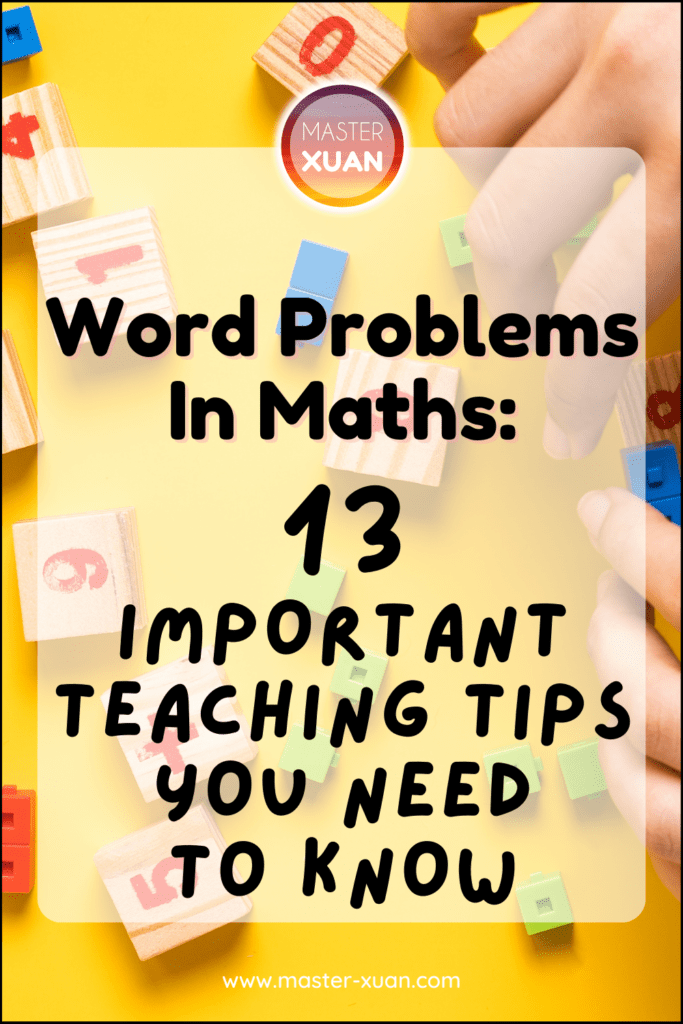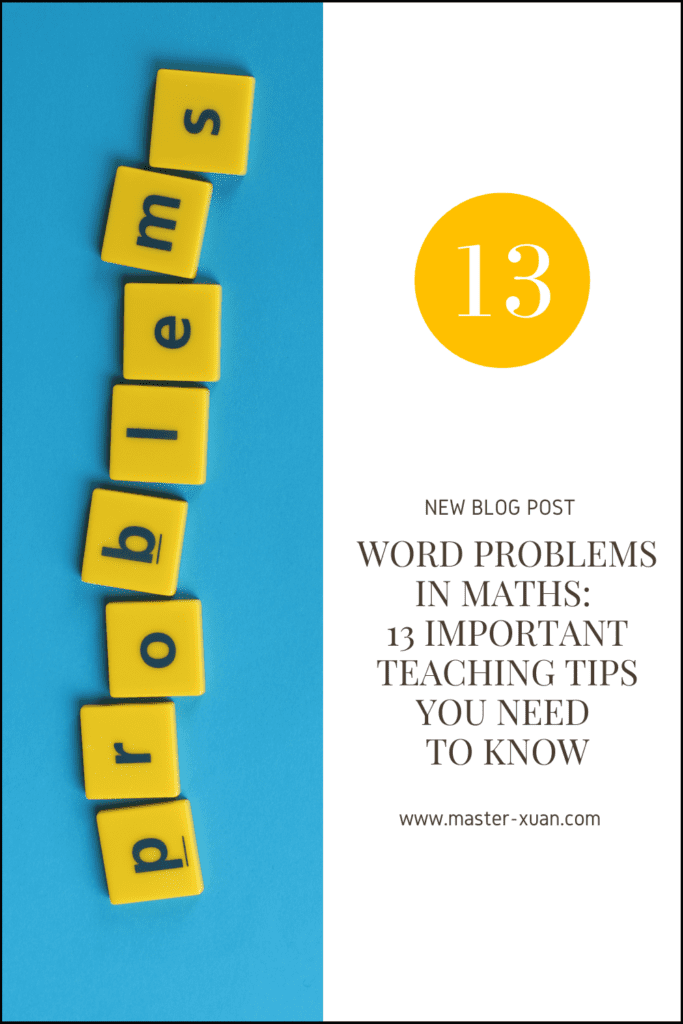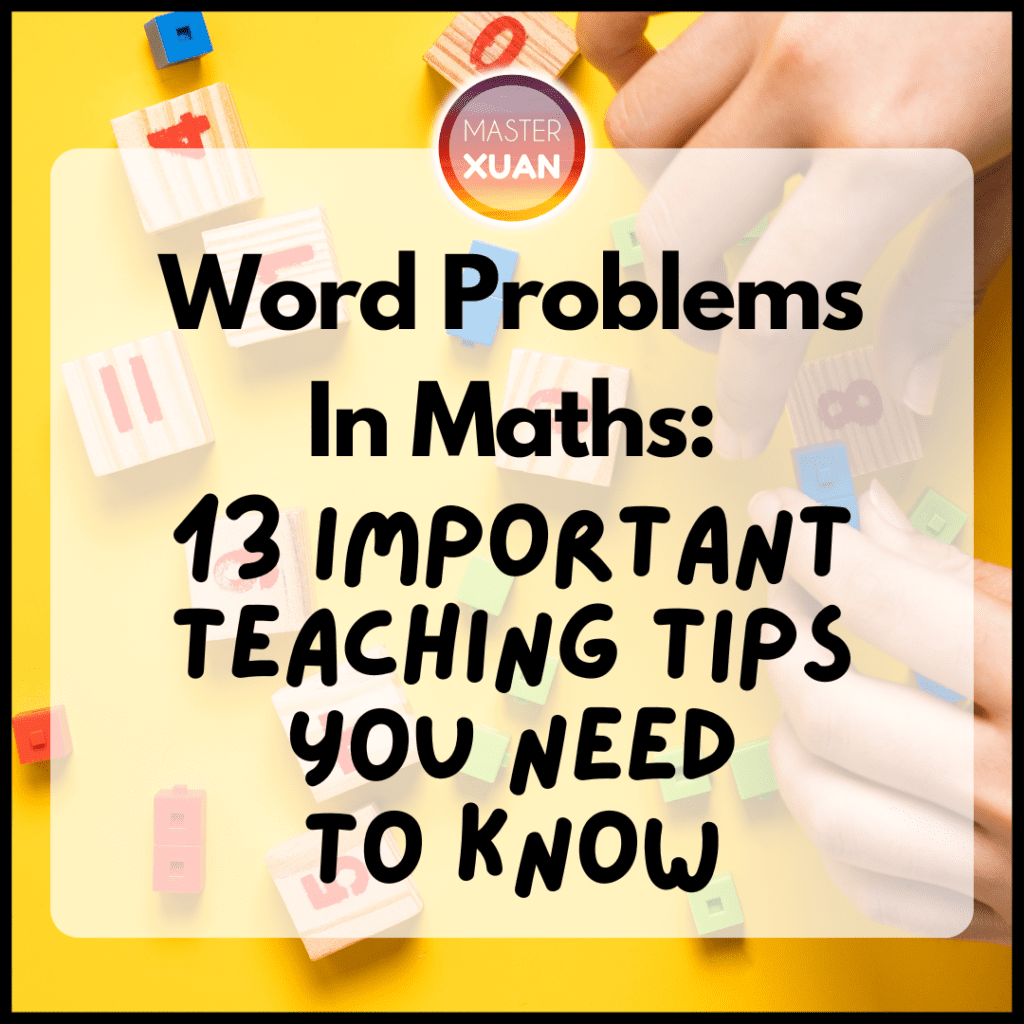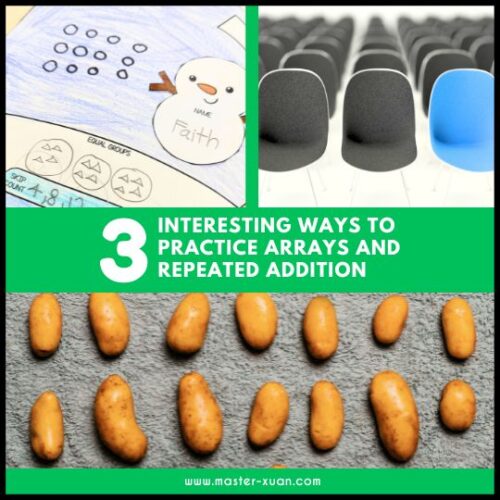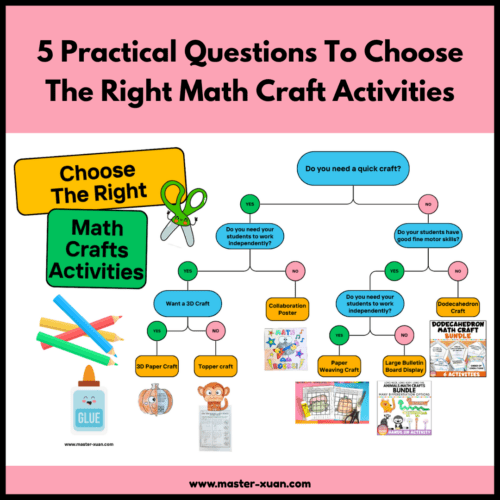Before we learn how to teach word problems in maths, let us have a deeper look into the subject of word problems. Only when we know the what, how, and why, then we will have more drive to teach them.
In this blog post, I will address the following questions:
- What is a Word Problem?
- What is a Multi-Step Word Problem?
- Why are Word Problems Important in Math?
- Why do Students Struggle with Math Word Problems?
- What are the strategies for solving math word problems?
What is a Word Problem?
A word problem is a math problem asked in a short narrative, like a story or a “real-life” scenario. Students are expected to comprehend the text and solve the math problem.
What is a Multi-Step Word Problem?
Some consider word problems that require more than one step as multi-step word problems.
I prefer to classify word problems with more than 2 steps as multi-step word problems.
Why are Word Problems Important in Math?

Firstly, the real-world aspect of word problems provides students with meaning and context for their learning. In addition, this can spark their interest in the subject.
Secondly, real-life problems do not present themselves as math equations. Since the discussion of the problem will be via language, students will need to learn how to figure out the math problem in a short narrative.
Lastly, word problems help train students’ understanding and application of mathematical concepts.
In conclusion, word problems are important because they allow students to know how math concepts are applied and presented in the real world, and help them learn how to apply the mathematical concepts.
13 Tips for Teaching Students How to Solve Math Word Problems
Here are 13 tips for how to teach math word problems:
1) Show a positive attitude toward word problems in maths.
Use a happy tone and show some excitement when teaching word problems. Don’t say or give students the impression of: “We all hate word problems. But we have no choice but to learn it.”
Students can pick up on it and their learning attitude will be affected.
So, spread your love for math, and let them associate positive emotions with word problems and math. For instance, when tackling hard and complex word problems, instead of agreeing that it is challenging, I like to use the word “interesting” instead.
2) Foster a growth mindset.
We all know mindset is very important. If students think they can’t learn, they will not learn and/or put in much effort.
Furthermore, word problems are the type of question that students often get discouraged and think they will never master.
So constant affirmation, praising, and reminding are required to encourage a growth mindset.
For example, celebrate efforts and acknowledge mistakes as part of the learning process. Encourage students to embrace challenges, and persist even when they get stuck.
3) Ensure students have all prior knowledge.
It’s very difficult to introduce new concepts if students don’t have prior knowledge. As teachers, we must ensure our students understand the basics first, before moving on to more advanced reasoning.
For example, if students still don’t understand the concepts of multiplication, they can’t comprehend a multiplication word problem.
4) Guide students using strategies for solving word problems in maths.
There are many problem-solving strategies in math. If you have any particular favoring methods that you would like your students to use, practice with them to reinforce them.
One strategy for teaching students how to approach word problems is by asking them questions about what they know about the problem. For example, “What do you think the question is asking you to find out?” Or, “How would you go about finding the answer?”
5) Demonstrate!
Show your students how to solve certain word problems step by step. Break it down and explain each step. Don’t just do it verbally, write it down too!
Don’t expect going through one question and all the students will know how to do similar word problems. Instead, guide students through similar word problems repeatedly.
6) Quiz students’ understanding.
When discussing mathematical concepts, it’s easy to assume people know what you’re talking about, but it’s possible some may not fully comprehend what you just explained.
Therefore, it’s important to ask questions and check whether they really understood what was being taught.
One way is to ask students to write or explain what does each equation or step. When students know exactly what the answer for each step represents, they will have a clearer idea of the logic behind the solution.
7) Explore the different ways they can use to solve a word problem.
Some word problems have more than one way to get the answer, share all of them! This way students get to choose the methods they can understand better.
Furthermore, by proving that there can have more than 1 way to solve the word problem, students will be more willing to try their own way to figure out the word problem when they are stuck.
8) Use visuals!
Using visuals when teaching Maths is extremely helpful. By drawing out mathematical concepts, it’s possible to enhance learning and improve retention.
Using graphics such as arrows, shapes, and doodles can help make the whole learning process more interesting and vibrant.
You can also use models to visualize the word problems, making it easier for students to see the relationships between values and characters.
Most learners will benefit from it no matter if they are visual learners or non-visual learners.
Related Read: Solve Word Problem Easily With A Model: A Step By Step Solution
9) Add some fun to word problems in math!
Making learning fun not only will engage students but it can also make more memory linkage.
There are many ways to add some fun to word problems.
Here are some examples:
- Act it out
- Project-based learning
- Theme-based
- Scavenger hunt
- Hands-on activity
- Mystery puzzles
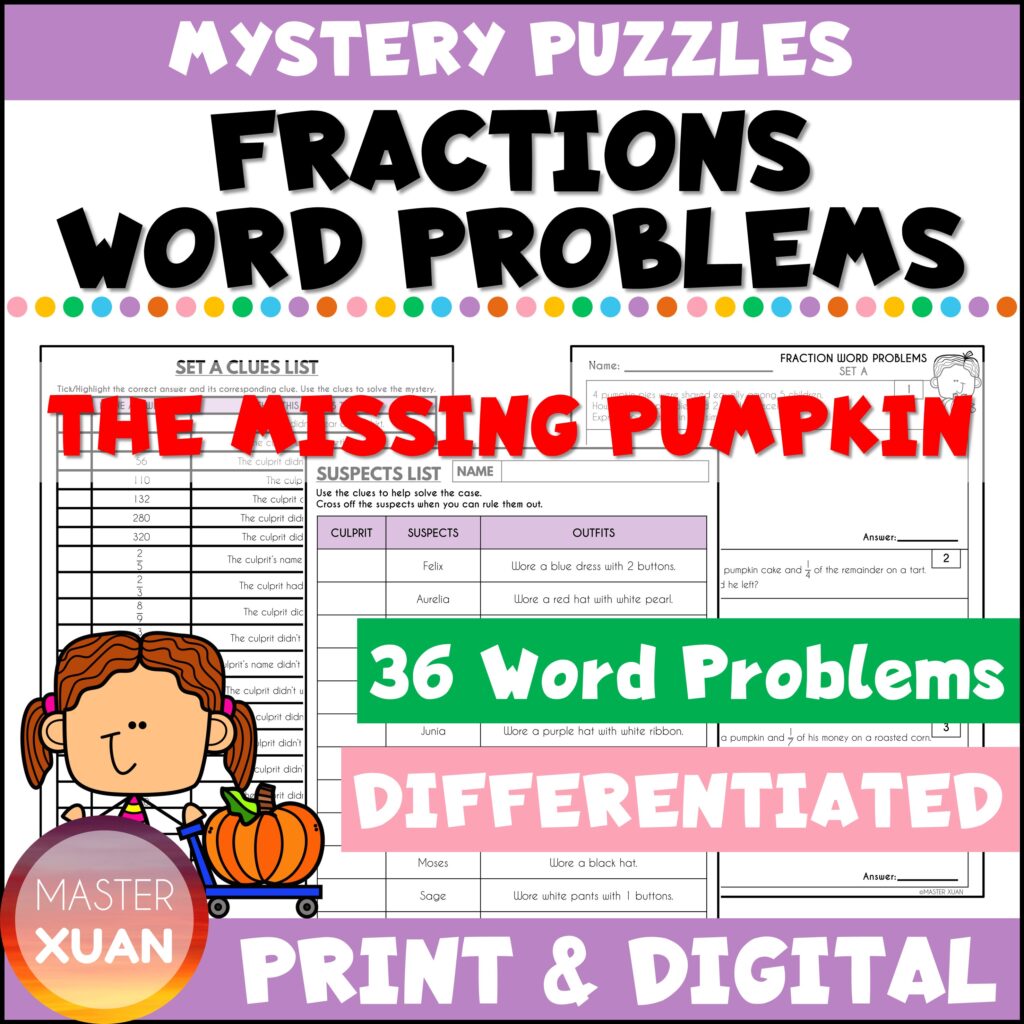
10) Differentiate!
Different students learn at different speeds. So providing differentiated worksheets are necessary. For example, provide word problems with different difficulty levels.
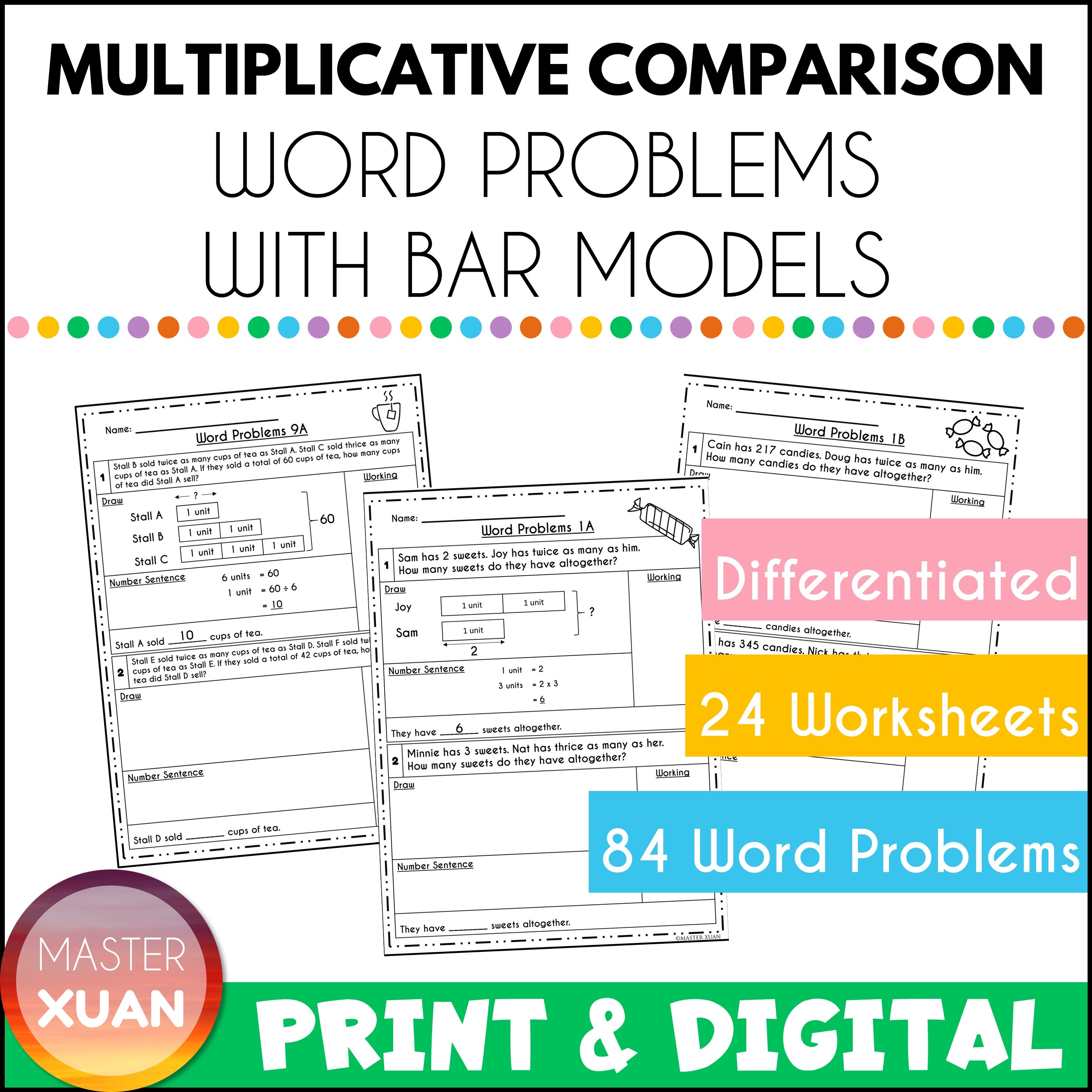
11) Let students practice independently.
After teaching students how to solve the word problem, you may need to provide more support before letting students practice independently.
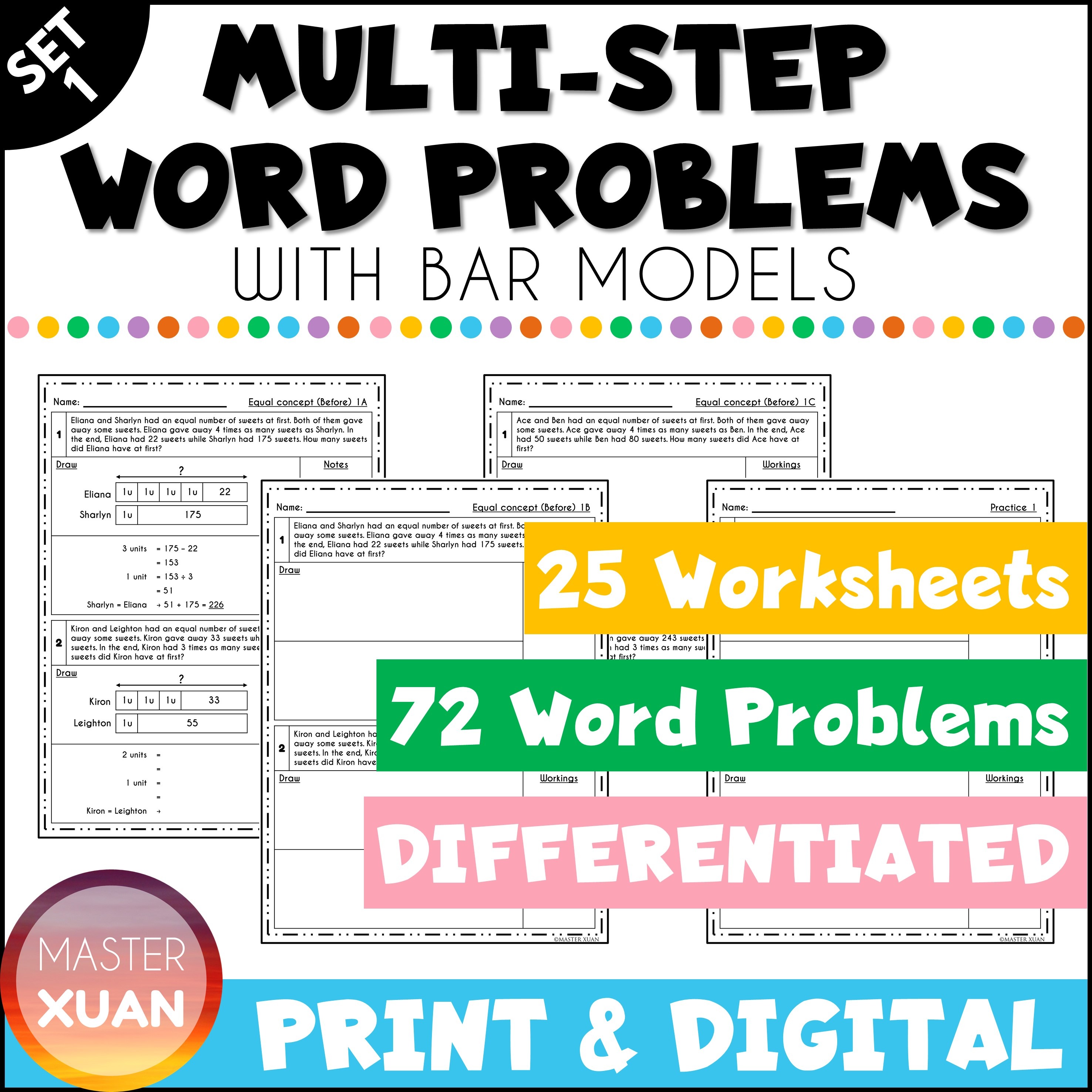
For example, this worksheet has a guided example. Then the next question has a model and legend written to guide students. The 3rd question requires students to complete the model and write the equation. Lastly, students are required to solve similar a question all by themselves.
12) Give lots of practice throughout the year.
Don’t just teach and forget cause your student will also learn and forget.
Review the word problems throughout the school year. This spaced practice will let students remember the concepts for a longer period of time.
13) Test them!
How do you know your students have mastered the word problem? Test them!
It can be a quiz or a surprise test. Nothing fancy.
Without any notes or references, if students can get it right, it means they get it. If they don’t, you get to know which step they stop at.
Collect the data and use it when reteaching or reviewing the word problems.
Conclusion
I hope these 13 actionable tips can make teaching word problems in maths easier for you.
Here is the summary:
- Show a positive attitude toward word problems.
- Foster a growth mindset.
- Ensure students have all prior knowledge.
- Guide students using strategies for solving word problems.
- Demonstrate!
- Quiz students’ understanding.
- Explore the different ways they can use to solve a word problem.
- Use visuals!
- Add some fun to word problems in math!
- Differentiate!
- Let students practice independently.
- Give lots of practice throughout the year.
- Test them!
Here are some pins that you can save to bookmark this post. Save them to your Pinterest Board now! ↓
